This case study addresses gender dimensions of hazardous chemicals and waste policies in Kyrgyzstan under the Minamata, Basel, Rotterdam and Stockholm conventions.
This report identifies good practices, policies and initiatives addressing the gender dimension in the context of chemicals management in Bolivia.

This case study discusses the effects of mercury in the Caribbean and gives recommendations to decreasing the negative impact.
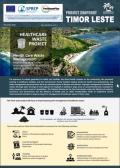
This case study demonstrates the implementation of several interconnected activities to improve long-term management of healthcare waste in Timor Leste.
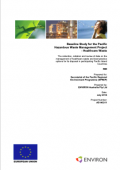
This report presents findings and offers recommendations of an assessment conducted for the Marshall Islands on the management of healthcare waste and best practice options for its disposal.
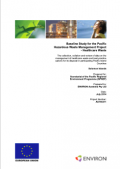
This report presents findings and offers recommendations of an assessment conducted for the Solomon Islands on the management of healthcare waste and best practice options for its disposal.
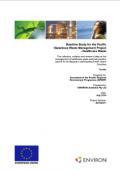
This report presents findings and offers recommendations of an assessment conducted for Tuvalu on the management of healthcare waste and best practice options for its disposal.
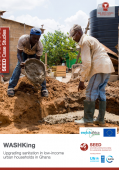
Since its establishment in 2016, the eco-inclusive enterprise WASHKing aims to eradicate open defecation and poor sanitation in low-income urban communities in Accra, Ghana.
In recognition of their capacity to respond to climate change, cities around the world have engaged in best practices such as Green Infrastructure and integrated transportation policies to mitigate climate change impacts. Whilst, these common best practices that are discussed have benefits for human health, climate change is increasingly posing...
